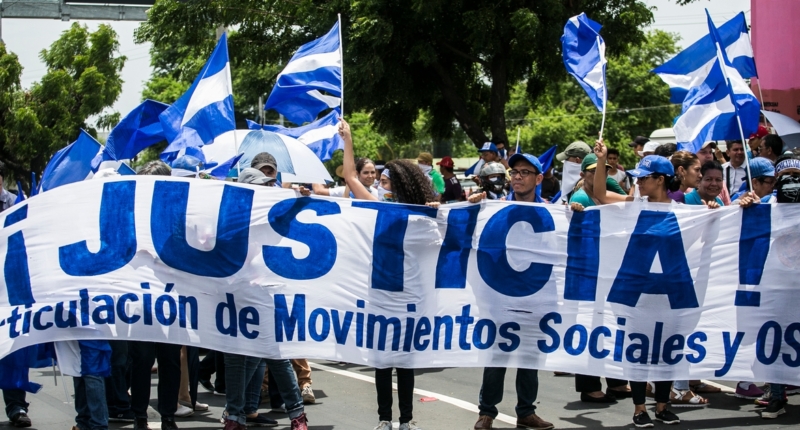The Group of Human Rights Experts on Nicaragua (GHREN) established by the UN Human Rights Council a year ago found evidence of crimes against humanity committed against opposition figures by authorities at all levels, including the highest level. The crimes included extrajudicial killings, imprisonment without due process guarantees, torture, forced deportation, and persecution. The GHREN’s findings aligned with the experiences of Nicaraguan civil society actors. The Chair of the GHREN called for the renewal of the Group’s mandate and identified the need to focus on three areas. These areas include support to victims in accessing justice, further investigation of violations targeting indigenous peoples, Afro-descendants, and peasant communities, and the instrumentalization of state institutions and confiscation of assets. As part of the Colectivo 46/2 coalition, ISHR calls on the Human Rights Council to renew the resolution on the human rights situation in Nicaragua for a period of two years, which establishes the mandate of the GHREN and the monitoring and reporting mandate of the OHCHR.
The UN Human Rights Council established the Group of Human Rights Experts on Nicaragua (GHREN) a year ago to investigate grave human rights violations and abuses committed in Nicaragua since 2018. In a recent report, the GHREN revealed evidence of crimes against humanity carried out against real or perceived opposition figures by government authorities at all levels, including President Daniel Ortega and Vice-President Rosario Murillo. The crimes include extrajudicial killings, imprisonment without due process guarantees, torture, forced deportation, and persecution, with 44 cases of extrajudicial killings identified. These crimes were committed “in the context of a discriminatory policy, intentionally orchestrated by the highest echelons of the Government, against part of the population of Nicaragua, for political reasons,” the GHREN found.
The GHREN’s findings align with the experiences of Nicaraguan civil society actors. Alexandra Salazar of the Unidad de Defensa Jurídica (UDJ) noted in a joint statement on behalf of the Colectivo 46/2 coalition during a Council dialogue with the GHREN on 6 March.
UN Assistant-Secretary General Ilze Brands Kehris provided the Council with an oral update on Nicaragua on 3 March. She cited the release and deportation of 222 political prisoners to the United States as an act characterized as forced deportation by the GHREN, followed by the arbitrary deprivation of their Nicaraguan nationality. Additionally, 94 other Nicaraguans were stripped of nationality, including human rights defender Vilma Núñez, who remains in legal limbo within the country.
Nicaraguan defender Olga Valle, a member of the citizen electoral observatory Urnas Abiertas, spoke of the depth of the crisis facing the Nicaraguan population.
The Unidad de Defensa Jurídica, Urnas Abiertas, and ISHR are among the members of the Colectivo 46/2 coalition of civil society groups that are calling for the renewal of the Human Rights Council resolution establishing the GHREN’s accountability mandate and the monitoring mandate of the Office of the High Commissioner for Human Rights (OHCHR). This coalition urges a two-year renewal of the resolution, as negotiations on a draft text to renew the resolution are ongoing, with consideration likely on 3rd or 4th April.
The Chair of the GHREN, Jan-Michael Simon, has also called for the renewal of the Group’s mandate and identified the need to focus on three areas. These areas include support to victims in accessing justice, further investigation of violations targeting indigenous peoples, Afro-descendants, and peasant communities, and the instrumentalization of state institutions and confiscation of assets. Simon stated that the GHREN needs terms of reference that allow for additional analysts and the use of specific technological tools, all supported by an adequate budget to support the work of the Group. Additionally, Simon reminded States that the findings of the Group’s first report compel them to action, including by resorting to universal jurisdiction.
As part of the Colectivo 46/2 coalition, ISHR calls on the Human Rights Council to renew the resolution on the human rights situation in Nicaragua for a period of two years, which establishes the mandate of the GHREN and the monitoring and reporting mandate of the OHCHR. Moreover, all Council Members are urged to support such a resolution and reinforce its intersectional approach, focusing on the situation of indigenous peoples and Afro-descendants, migrants and forcibly displaced persons, those detained for political reasons, and the relatives of victims.
Don’t miss interesting posts on Famousbio









